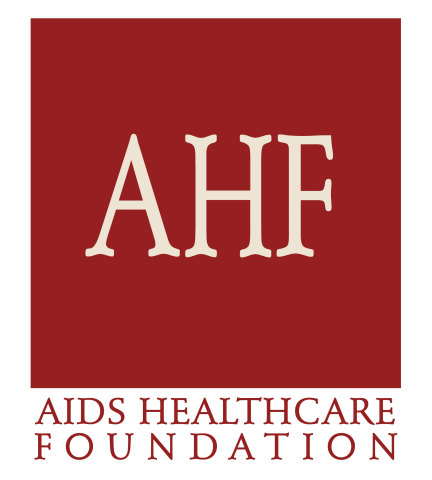LOS ANGELES--(BUSINESS WIRE)--In response to a provocative new billboard campaign by AIDS Healthcare Foundation (AHF) that draws attention to rising STD rates found among users of popular dating or “hookup” mobile phone apps, Tinder, one of the mobile applications highlighted in the public service campaign, fired up its legal team and issued a ‘cease and desist’ letter demanding that AHF halt the campaign and take down the billboards. Within two hours of the billboard posting in Los Angeles (the only market where the boards are currently posted), Grindr, another of the apps highlighted in the campaign, cut off AHF’s paid advertising for its free STD testing services on the site. Within 24 hours, Tinder issued its cease and desist letter, claiming AHF’s public service ad, “…is responsible for…falsely associating Tinder with the contraction of venereal disease.”
However, as a catalyst for the STD prevention and awareness campaign (which drives viewers of the boards to the website ‘www.FreeSTDCheck.org’), AHF looked to one report by the Rhode Island Department of Health, which in May reported that cases of syphilis, gonorrhea and HIV rose sharply between 2013 and 2014 and said that high-risk behaviors such as “using social media to arrange casual and often anonymous sexual encounters, having sex without a condom, having multiple sex partners, and having sex while under the influence of drugs or alcohol” have become more common in recent years. According to a study by Beymer et al. (2014), gay men who are meeting on location-based dating apps are at greater risk for gonorrhea and chlamydia than those who meet in-person or on the internet.
In addition, a lengthy September 2015 Vanity Fair article entitled “Tinder and the Dawn of the ‘Dating Apocalypse’” explored the role mobile dating apps are increasingly playing in encouraging casual sex among young adults.
"Both Tinder and Grindr’s response to our latest public service ad on STD awareness has been really tone deaf. We expected that these businesses would be concerned about the sexual health of their customers, from whom they make millions. Instead they call lawyers. Their priorities seem clear," said Whitney Engeran-Cordova, Senior Director, Public Health Division for AIDS Healthcare Foundation. “Nine out of ten alcohol companies include ‘Please Drink Responsibly’ warnings on their products. Meanwhile, hook up application developers take a ‘Wild West/Anything Goes’ attitude to possible consequences of their apps despite clinical studies showing a correlation between app use and increased STDs."
In a September 23rd AHF response to Tinder, Laura Boudreau, Chief Counsel for Operations for AHF, wrote:
“AIDS Healthcare Foundation (AHF) received your September 18th letter and respectfully declines to remove all references to Tinder in AHF’s billboard campaign. Furthermore, AHF has not made any false or disparaging statements against Tinder and therefore has no reason to cease making any such statements.”
Boudreau added:
“Rather than trying to chill AHF’s public health message by threatening AHF with frivolous lawsuits, AHF urges Tinder to support its message of sexual health awareness by encouraging Tinder users to get tested for STIs and to get treated promptly if they have an infection…
… In short, AHF urges Tinder to rethink its attack on AHF’s message and re-direct its energy toward supporting the health of the consuming public who have made Tinder the success that it is.”
AHF’s billboard campaign featuring Tinder and Grindr attempts to remind users of the inherent STD risks of both heterosexual and homosexual casual sexual encounters. The billboard feature cameo-like black silhouettes of four heads positioned as two couples facing each other set against a colorful purple background. With each couple, one head has the superimposed name of one of the popular hook up apps, such as Tinder, while the facing head lists the name of a sexually transmitted disease, such as Chlamydia. The billboard also includes the URL ‘FreeSTDCheck.org.’ The billboard does not expressly equate the social apps with STDs, but encourages users to think about whether their use has put them at risk, and gives them information on where to get tested.
Tinder, which was released in September 2012 on college campuses, is the #1 Lifestyle app in both the iOS and Google Play app stores. The company stated in May 2015 that “the single largest age group on Tinder, making up more than half of our entire user base, is 18-24.” According to research firm GlobalWebIndex, the app is being used largely in urban locations (76%) like Los Angeles. Launched in 2009, Grindr is the most popular gay male location-based mobile app with over 10 million user downloads and over 2 million daily active users in 192 countries.
AHF’s Wellness Centers provide free testing for sexually transmitted diseases, including chlamydia, gonorrhea, syphilis, and HIV. To find the nearest location for STD screening and treatment, visit www.freestdcheck.org.
AIDS Healthcare Foundation (AHF), the largest global AIDS organization, currently provides medical care and/or services to over 486,000 individuals in 36 countries worldwide in the US, Africa, Latin America/Caribbean, the Asia/Pacific Region and Eastern Europe. To learn more about AHF, please visit our website: www.aidshealth.org, find us on Facebook: www.facebook.com/aidshealth and follow us on Twitter: @aidshealthcare and Instagram: @aidshealthcare




